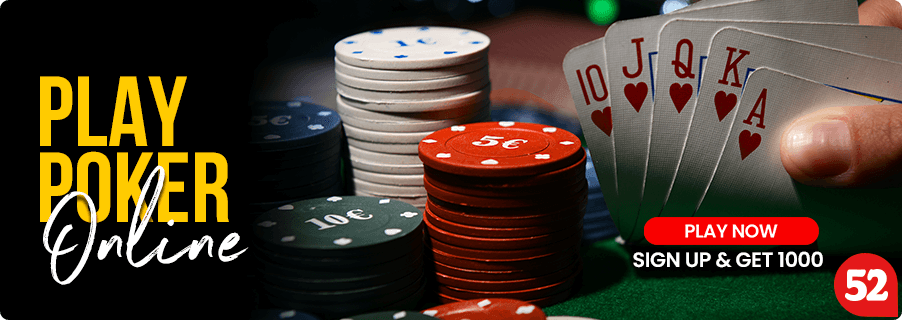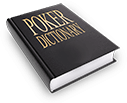Online Poker Games - Play Poker Online
What is Poker?
Poker is a popular card game that involves both skill and strategy. The objective of the game is to win by betting on the value of your hand. If your hand is better than your opponent's, you win the round and the pot.
Poker is usually played with a standard deck of 52 cards. The Ace is high, and the Two is low. There are no jokers. The suits (Clubs, ️ Diamonds, Hearts, Spades) have equal value in poker except to break ties otherwise they have equal value.
History of Poker Game
Poker has a rich history dating back to the early 19th century in the United States. Its origins are believed to stem from various European card games, with influences from the French game "poque" and the German game "pochen." The name "poker" itself is thought to have been derived from the slang word "poke," a term used by card players to describe the act of bluffing or hiding one's true intentions.
Throughout the years, poker has evolved into a popular pastime. The introduction of the 52-card deck and the concept of betting rounds contributed to the game's complexity. Poker continued to grow in popularity, and by the 20th century, it had become a staple in casinos and home games alike.
Today, poker has transcended borders and cultures, with various variants played globally, including Texas Hold'em, Omaha, and Seven-Card Stud. Its enduring appeal lies in the combination of skill, strategy, and the element of chance that keeps players coming back to the table.
Play Poker Online - A Game Of Skill
Poker is a game of skill where you need to understand the rules and use strategy to outsmart your opponents. Each card has a value, and it's about making the best decisions based on the cards you have and those on the table. It's not about luck; skill and tactics play a big part in winning. The deck has numbers from two to ten, and then there are Jack, Queen, King, and Ace. These cards come in four suits: Spades, Hearts, Diamonds, and Clubs, and all of them are equally important.
Whether you're playing different types of poker, they all follow the same rule of using the top five cards to make your hand. It's like building the best combination of cards to win. So, no matter if it's a Two or an Ace, they all play a role in the game.
How to Play Poker Online
Poker is a simple game that can be grasped by anyone interested. Follow the steps highlighted below to learn how to play poker.
-
Getting Started:
- Poker is a card game for two or more players
- A designated dealer distributes cards to each player, with the number of cards depending on the specific poker variant
-
Sitting Positions:
- Players have specific positions like the ‘small blind’ and ‘big blind’
- The small blind is the person sitting to the left of the dealer and must place a small bet
- The big blind, sitting next to the small blind, places a larger bet
- ‘Under the Gun’ sits to the left of the big blind
-
Betting Rounds:
- Players take turns betting on the strength of their hands
- Betting involves placing chips or money into a central pot, contributing to the total winnings for the round
-
Hole Cards:
- Each player is dealt a set of cards known as ‘hole cards’
- These hole cards are private and only visible to the respective player
-
Community Cards:
- The cards that are dealt on the table are called ‘Community Cards’
- In the ‘Flop’ round, three of the cards are revealed
- In the ‘Turn’ round, the fourth card is turned
- In the ‘River’ round, the fifth and final card is turned upright
-
Hand Evaluation:
- Players assess the strength of their hands based on the combination of cards they hold
- Common poker hands include pairs, three of a kind, straights, flushes, full houses, and more
-
Winning the Round:
- The player with the highest-valued hand at the end of the betting rounds is declared the winner
- Alternatively, a player can win by convincing all others to fold, meaning they give up on the round
Basic Online Poker Game Rules
The basic rules of poker are simple:
- The purpose of poker is to win by betting on your hand and then forcing the other poker players to fold their hands. Poker is a game of skill and strategy. The best players use all three to their advantage
- In order to win at poker, you need to understand the value of each hand and how it changes with the addition of more poker cards. You also need to be able to read the other players and know when they are bluffing
- You must bet according to the strength of your card sequence and the size of the pot
- The most important thing to remember is that poker is a game. So, play responsibly
The basic rules of poker are relatively simple, but it can take some time to master the game. The first thing you need to know is the ranking of hands. Aces are high, and 2s are low.
The other cards follow in order from 3 to 10, then Jack, Queen, and King. The next thing you need to understand is betting. Each player places the bets in the pot. The bet depends on the cards they hold and the chips they have left.
Once all of the betting has been completed, it is time for the showdown. This is where each player reveals their hand, and the winner is announced.
When the two players are left at the end, the one who has the better cards is announced as the winner.
Poker Pot Limit Types
In poker, there are different ways you can bet, and one of these is called "pot-limit." Pot-limit is one of the three main betting forms, along with fixed-limit and no-limit.
Pot-Limit Poker:
In pot-limit poker, there's a specific rule about how much you can bet or raise. The maximum amount you can bet or raise is determined by the current size of the pot. So, as the pot grows, the maximum amount you can wager also increases.
Fixed-Limit Poker:
Fixed-limit poker is one of the more traditional and structured forms of poker betting. In a fixed-limit game, there are specific rules regarding the amount players can bet or raise during each betting round. These limits are predetermined and consistent throughout the entire game.
No-Limit Poker:
In contrast to fixed-limit and pot-limit, no-limit is another popular form of poker betting. In no-limit poker, players have greater flexibility when it comes to betting and raising. There is no maximum limit on the amount you can bet or raise during a hand.
Poker Game Hand Rankings
Poker is a game of strategy and knowing which cards to hold, and which to fold. The key to being a successful poker player is understanding the kinds of poker hands.
A poker hand consists of five cards, and the rank of the hand depends on the combination of those cards. Here are the standard poker hand rankings, from highest to lowest:
- Royal Flush: A straight flush that goes from 10-A. (A K Q J 10 )
- Straight Flush: Five cards in sequential order, all of the same suit. (Q J 10 9 8 )
- Four of a Kind: Four cards of the same rank.(10 10 10 10 J )
- Full House: Three cards of the same rank, plus two more cards of the same rank. (4 4 4 J J )
- Flush: Any five cards of the same suit.(A J 10 4 2 )
- Straight: Five cards in sequential order. (6 5 4 3 2 )
- Three of a Kind: Three cards of the same rank. (8 8 8 3 7)
- Two Pair: Two cards of the same rank, plus two more cards of the same rank. ( 6 6 4 4 J)
- Pair: Two cards of the same rank ( 9 9 4 Q J)
- High Card: When it is none of the above, it is the high-card (K 3 10 9 2)
If you want to be a successful poker player, it is important to memorize the ranking of hands.
Online Poker Game Variations
One of the great things about poker is that there are so many different variations to choose from. Whether you want to play the simplest game of five-card draw or a traditional poker variation like Texas Hold 'em, there's a poker game out there for everyone.
If you're looking to mix things up and try something new, here are a few popular poker variants that you can play on adda52.com.
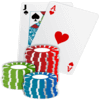
Texas Hold’em Poker: One of the most popular variants of poker is Texas Hold 'Em. This game is perfect for those who enjoy a strategy-based game. Players are dealt two cards each and then share five community cards. The goal is to make the best hand possible using any combination of your two cards and the five community cards.
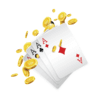
Pot Limit Omaha: Omaha is a family of poker variants that all have common roots in Texas hold ’em. Pot limit Omaha (PLO) is one of the popular poker variants and is the most heavily played poker format. In this variant, the players receive four private cards and they have to make the best hand using 2 private cards and three community cards.
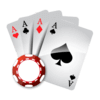
Omaha Hi/Lo: Omaha High/Low, also commonly called Omaha/8, is a split pot game. This means that half the money goes to the high hand, while the other half goes to the low hand. In this game, the player gets two hole cards and they can use any combination of hole cards and community cards to make the strongest 5-card hand. Two most commonly played Omaha versions are Pot Limit Omaha and Omaha Hi-Lo.
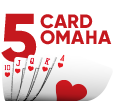
5 Card Omaha: If you're looking for a form of poker that requires a little more strategic thinking, 5 Card Omaha Poker might be right up your alley. This game is similar to Texas Hold 'Em, but each player is dealt five private cards, and they have to make the best hand using two of the private cards and three community cards. Poker players all over the world enjoy playing 5 Card Omaha. In this game, players have to be more mindful of what their opponents are holding.
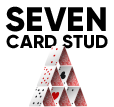
Seven-Card Stud: Another well-known variant of poker is Seven Card Stud. This classic poker game is typically played with anywhere from 2-8 players. In this game, each player is dealt seven cards throughout the course of the hand, three of which are face down and four of which are face up. Players must make the best five-card hand possible using any combination of their seven cards.
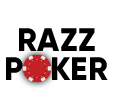
Razz: Razz is another poker variant of seven-card stud, but it is specifically designed for lowball games. In Razz, the lowest hand wins, so players are always striving to make the weakest possible hand.
No matter what your skill level is, there's a poker variation that's perfect for you. So what are you waiting for? Get out there and start playing!
How to deal in poker
If you're looking to up your poker game, then learning how to deal is a crucial skill to have. Dealing correctly can mean the difference between winning and losing a hand, and it can also help you ensure that the game is fair for all players involved. Here are some poker tips on how to deal in poker:
- Make sure that everyone has an equal number of cards before dealing starts. This means ensuring that there are no jokers or other wild cards in the deck and that everyone has the same number of cards in their hand
- Pay attention to who is dealing. The player who is dealing should always be paying attention to the game and should not be distracted by anything else. This helps to prevent any cheating that may occur
- Deal the poker cards clockwise around the table. This ensures that everyone gets a turn to receive their cards and also helps to keep track of who should be receiving which card
- Be aware of what's going on at the table. Pay attention to the betting patterns of the other players and try to anticipate what they may do next. This will help you make better decisions when it comes to your own betting
How to bet in poker
If you're looking to up your poker game, betting is an essential skill to master. Here are some tips on how to bet like a pro:
- Know the odds. This is critical in any game, but especially in poker, where the stakes can be high. Pot odds are the ratio of pot odds to the size of the pot (divided by the size of the bet). For example, if the pot is ₹100 and the size of the bet is ₹10, then your pot odds are 10-to-1. Knowing pot odds can help you make better betting decisions
- Learn about the different types of bets. There are three main types of bets in poker: the blind bet, the raise, and the call. The blind bet is when you bet without looking at your cards, while the raise is when you increase the amount of your bet after someone else has already bet. The call is when you match the amount of another player's bet
- Have a betting strategy. Don't just randomly throw money around the table; have a plan for how much you're willing to bet on each hand. Be prepared to adjust your strategy as the game progresses, but don't get too aggressive or conservative
- Pay attention to the other players. One of the most important aspects of poker is reading your opponents. Try to get a sense of what kind of hand they might have and how they're likely to bet. This information will help you make better decisions about your own bets
- Keep your cool. Poker can be an emotional game, but it's important to keep your cool when betting. If you let your emotions get the best of you, it's easy to make rash decisions that you'll regret later
Seeing and raising
- In poker, "Seeing and raising" is a crucial move when anticipating an opponent's raise
- When facing a raise, evaluate if your hand is strong enough to surpass the opponent's
- If you doubt your hand's strength, folding is a wise decision to preserve chips
- If confident in your hand, make the call and initiate a raise against the opponent
- Some players make the mistake of folding to avoid chip risk when they anticipate a raise
- Understanding when to see and raise enhances strategic gameplay and can be pivotal in the game
How do I use check-raise?
- Check-raising builds the pot, especially in a dry pot with few chips
- Raising during a dry pot attracts more chips into the pot
- Check-raising protects a good hand without risking too many chips
- Checking initially and then raising when someone else bets leads to a larger pot win
- Downsides include the cost if opponents call your raises
- Consistent check-raising with only strong hands can reveal information about your hand
- Exploiting a good hand through check-raising increases the chance of winning and accumulating more chips
Poker Strategies and Tips
There are a lot of different poker strategies and tips out there, but not all of them are created equal. Some are more effective than others, and some are just plain old bad advice. If you want to win at poker and become a professional player, you need to know what the best strategies and tips are.
Here are some basic strategies and tips that can help you increase your chances of winning.
- Know the odds: Familiarise yourself with the probability of winning hands and learn to read the other players. This will give you an edge in knowing when to bet and how much to bet
- Bluff: Another great poker strategy is to bluff your opponents. If you can convince your opponents that you have a better hand than they do, you can take their money very easily. Bluffing is all about psychology; if you can make your opponents think that you have a better hand, they will probably fold
- Be level-headed: Don’t let emotions get in the way of your decision-making. If you make rash decisions, you are more likely to lose money
- Be patient: Don’t try to win every hand. Sometimes it is best to wait for a better opportunity
- Be aggressive when appropriate: One of the most important poker-winning strategies is to be aggressive. A lot of players are too passive, and they end up losing a lot of money. You need to be willing to put in a raise or a bet when you have a good hand. This will force other players to fold their weaker hands, and it will also make them pay you more money when you do hit your hand
- Practice makes perfect: The more you play, the better you will become at reading people and making strategic decisions
- Don’t give up: One of the most important things to remember when playing poker is to never give up. Even if you are down to your last chip, never give up
Following these simple tips will help you improve your poker game and increase your chances of winning.
Why Play Poker Online on the Adda52
Playing Poker games online is the best source of entertainment, and once you master poker rules, you can even indulge in cash games. You will find several platforms to play Poker for real cash, but Adda52 is the best place for you! The top features of our app and website will take your gaming experience to the next level. Here are some of the best features Adda 52 has to offer:
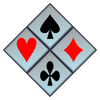
Superior Gaming Experience - You will get a superior gaming experience on our website. Our website comes with many impressive features like attractive designs and multiple table options for High rollers as well as novice players. You won’t even have to download the app, you can directly play Poker online in India on browsers like Google Chrome, Mozilla Firefox, etc. (Not compatible with IE).

iTech Labs Certification - Adda52.com as a platform has been certified by iTech Labs for fair gameplay. This means we have a global standard in gaming software reliability. This means all the players will have an equal chance of winning. The app is designed to offer the same experience and chances to everyone. Each player gets the cards randomly, and there is no foul play. So, the outcome of each match will depend on your skills.

100% Safe & Legal - You can easily play poker and all other online games without worrying about breaking the law. Playing these games is completely legal at Adda52.com. The gameplay is safe & secure and 100% compliant with existing Indian Law. Since poker is a skill-based game, you can even participate in cash games without hesitation.

Varied Payment Options - You can deposit money via a lot of payment options like Credit cards, Debit cards, Net Banking, etc. Players are also allowed to purchase virtual chips and play Poker games on the site in a highly user-friendly, efficient, and completely secure way.

Dedicated Customer Support Team - Whenever you face any troubles, we will be right there to support you. Our customer support team is committed to ensure the best customer service to all Adda52.com players. You can easily contact our support team and they will assist you with everything. Simply contact us at 1800-572-0611 (Timings: 10:00 AM - 12:00 AM | Mon-Sun ) or email us at info@adda52.com on all working days.

Instant Withdrawal: Adda52 provides a straightforward and easy-to-use process for withdrawing money. When a user decides to withdraw a certain amount, it is immediately taken out of their Adda52 account, preventing them from using that specific amount for playing. During the withdrawal process, the system first deducts the requested amount from the deposited funds. If the deposit balance is not enough to cover the entire withdrawal, the remaining amount is then subtracted from the user's winnings. This ensures a transparent and fair approach to handling withdrawals on Adda52.

GST Cashback: Adda52 offers a unique GST cashback offer where players receive a 100% cashback on the GST charged. This means players can enjoy a full refund of the GST amount, adding extra value to their gaming experience.

Deposit Offers: Adda52 provides a variety of deposit offers for both new and existing users. First-time users can enjoy special promotions, no-cost entries, etc. Additionally, there are exclusive deposit offers for second-time deposits and beyond, ensuring that players continue to receive valuable incentives as they engage with the platform.

Leaderboards: Monthly leaderboards add another opportunity for players to show their skills and bank on them. As users play more hands, they climb the leaderboard rankings. What makes it even more enticing is that players receive a rakeback percentage based on their position on the leaderboard.

Poker Variants: Adda52 offers a diverse range of poker variants to cater to different player preferences. From classic Texas Hold'em to Pot Limit Omaha 5 and 6, along with engaging formats like All-in/Fold and Sit & Go, players can enjoy a variety of poker experiences on the platform.

Responsible Gaming: Adda52 prioritises responsible gaming by offering features that empower players to manage their gaming activities. With table blind limits, players can set their preferred blinds, ensuring responsible participation. The tournament and SNG buy-in limits allow users to control their buy-ins, fostering a secure gaming environment. Additionally, the self-exclusion option offers a temporary break for those feeling adversely impacted. The Deposit Limit feature promotes financial control by allowing players to set personalised deposit limits.
Poker’s Hall of Fame
- Established in 1979 by Benny Binion, owner of Horseshoe Casino in Las Vegas
- Originally named the Poker Hall of Fame, it was later renamed the World Series of Poker Hall of Fame
- Players eligible must have played poker for high stakes over an extended period
- The induction ceremony occurs during the annual World Series of Poker tournament
- 41 individuals have been inducted into the Hall of Fame since its inception
- Doyle Brunson, Amarillo Slim Preston, Patrik Antonius, Puggy Pearson, Phillip Ivey, Stu Ungar, Daniel Negreanu, and Johnny Chan are notable names in the Poker Hall of Fame
- These players have played pivotal roles in shaping the game of poker, contributing to its current status and popularity
Indian Poker
- Indian poker, also known as "Blind Man's Bluff," involves players seeing all cards except their own
- Players place their card on their forehead without viewing it, employing strategy and reverse bluffing
- Played with a standard 52-card deck, ranked from Two to Ace, with suits ranked from highest to lowest: Spades, Hearts, Diamonds, Clubs
- Ideal for 3 to 12 players, but can accommodate 2 to 20
- The initial dealer and seating are determined by randomly drawing cards from a shuffled deck
- The highest card drawer chooses a seat first and becomes the initial dealer
- After seating, the deck is shuffled and cut to the dealer's right-hand opponent
- Each player receives a face-down card in clockwise order, starting from the dealer's left, without looking at it
Conclusion
In conclusion, poker is a captivating card game that blends skill, strategy, and a touch of psychology. For those starting out, mastering hand rankings and understanding the meta-game of bluffing and strategy are crucial components.
Practice is key, and participating in freeroll tournaments on platforms like Adda52 provides an excellent opportunity to hone your skills.
As you progress, you can start entering cash tables or tournaments, allowing you to compete at a professional level.
Online Poker Game FAQs
Which variants of poker can I play on Adda52?
We have many variants of poker on our website. Texas Holdem, Pot Limit Omaha, Omaha Hi/Lo, and Crazy Pineapple. All variants are available for tournaments, cash games, and freerolls.
How do you play poker
Poker is a card game that is played with a standard 52-card deck. The game can be played with anywhere from two to ten players.
The aim of the game is to win the pot, which is the money that the players have bet during the course of the hand.
The pot is won by either having the best hand or by betting in such a way that all the other players fold.
Is poker a skill or luck game?
Poker is widely considered a game of chance, but there is also a high-skill component to the game. Poker is a card game involving betting and individual play, whereby the winner is determined by the ranks and combinations of their cards, some of which remain hidden until the end of the game.
Poker games vary in the number of cards dealt, the number of shared or “community” cards, the number of cards that remain hidden, and the betting procedures.
You will need to strategize and use your skills while playing this game. This is why poker is considered a skill game all around the world.
Is poker legal in India?
Yes, poker requires extensive skills, and this is why it is deemed a skill-based game in the country. This is one of the primary reasons why playing poker is legal in India.
What is the most popular poker game?
Texas Hold'em is widely regarded as the most popular poker game. Its simplicity, strategic depth, and prominence in major tournaments contribute to its widespread appeal among players worldwide.
Is poker a hard game?
Poker can be challenging due to its blend of skill and strategy. Mastering the game requires understanding hand rankings, reading opponents, and making calculated decisions, making it a game with a learning curve.
Is poker good for money?
Poker can be lucrative for skilled players, as success depends on strategic decision-making and reading opponents. Just like any other game, poker requires years of practice and dedication for it to be a lucrative career option.
Can I play poker game online free?
Yes, you can play free online poker games at Adda52. It is one of the best gaming platforms to enjoy a seamless playing experience and earn big even with poker games free.
